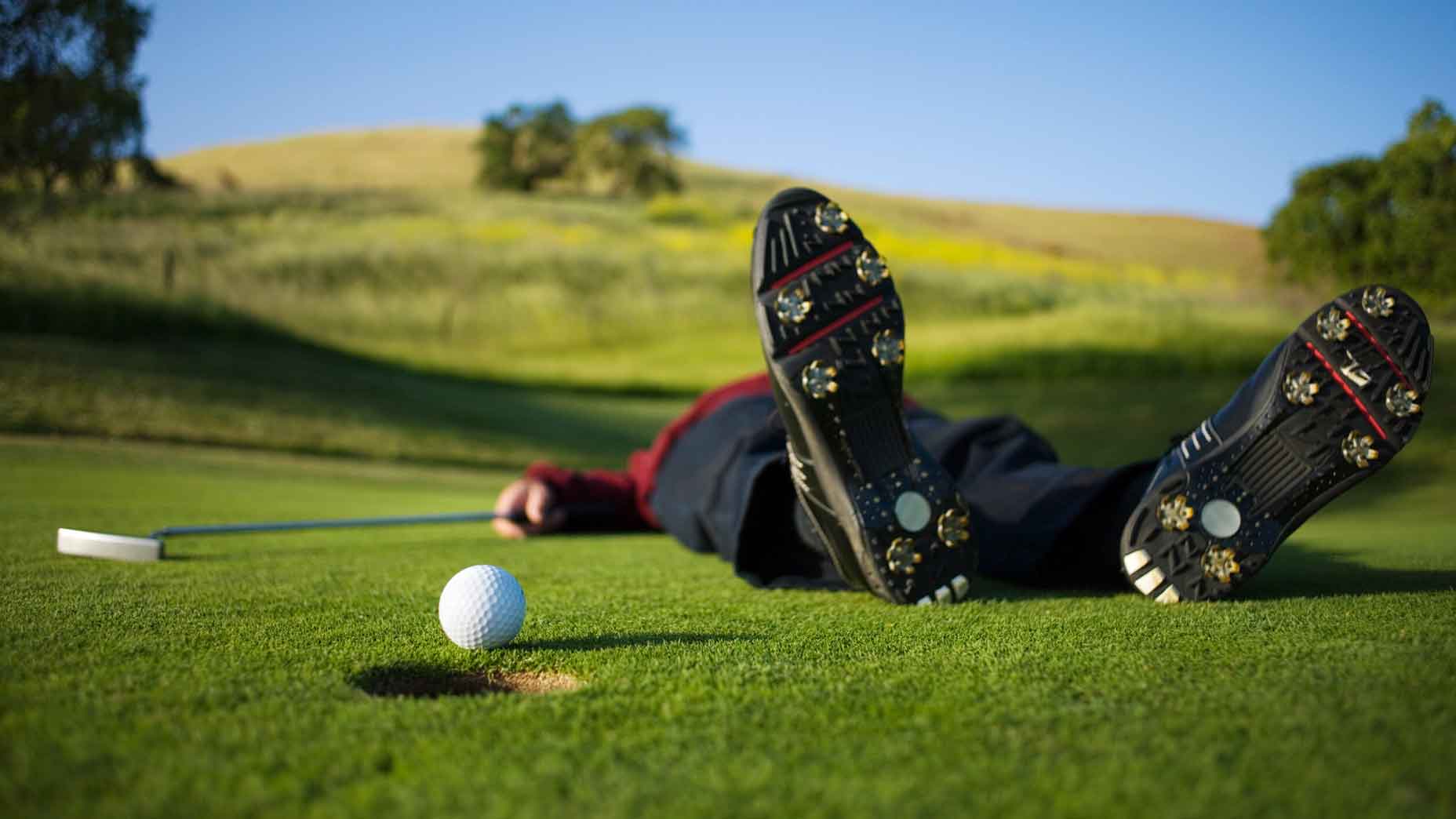How self-disabling can help – and hurt – your game

Julie Elion
Disability can be a good thing – sometimes.
Getty Images
What is your golf handicap? No, not your current play directory. I’m talking about your handicap, which is defined as your favorite excuse behind a small gun or a way-around – and unlike what’s next to your name on the GHIN, it has nothing to do with how you compete. . Instead, it’s all about how you compete with yourself.
Self-handicapping is the psychological term for the excuses we make to protect our self-esteem. We don’t like to fail, so we proactively and defensively identify the reason why we might. Two summers ago, in fact, this magazine put the usual excuses – alibis like “I didn’t have a chance to warm up,” “I’ve never played this course before” or a disabled line leader. list: “It’s been a while since I played.” How many of these have you heard – or said – this season?
I do it too. On a recent, rainy Saturday, I was playing rough. Shot after shot, I heard myself complain. “My ribs are wet,” I said. Then, after the rain stopped, “These are getting old.” The back of the ninth was: “I didn’t bring another glove.” I kept finding excuses to make myself feel better about the missed shots.
Professional golfers come up with their own versions of these self-injury reasons. In a recent PGA Tour event, the co-leader stripped his umbilical cord in the water on the 18th. He stared at his wrinkled face as if the wrong cracks would ruin the gun.
What is happening here? Self-forgiveness serves a productive purpose because it protects us from seeing our mistakes as personal failures. But, as self-handicapping academic researchers have discovered, there’s another benefit to this strategy: It actually helps us enjoy the game more because it helps us reduce negative consequences. As most commentators on the mental game of golf suggest, we tend to play better when we stop worrying about our score.
The authors of a landmark study in this corner of sports psychology found that pinball players who used excuses like those golfers relied on — “I didn’t practice,” for example — were more present in their games. Excuses, research suggests, create less anxiety, lower floors, more space for fun and an allowance for imperfection.
Excuses may be an expression of the participant’s enthusiasm. We care about how golf makes us feel. That love for the game and the desire to succeed was a big part of what I saw during my watery rounds.
But handicapping yourself isn’t always the best strategy for every golfer — certainly not my PGA pros. Tour players depend on high performance and are paid by results. Excuses that distort accountability also hinder learning, stunt growth and limit resilience.

Is your frustration at school mental or technical? Why it helps to know the difference
By:
Julie Elion
Learn from 2024 Olympic gold medalist Scottie Scheffler. On the 7th hole of his second round, Scottie found himself out of a bad lie in the long grass. He took a big swing that pushed his divot farther than his ball. The next lie didn’t fare much better. In regards to that impressive streak, Scheffler said: “I know if I stay patient on this golf course and play well, I can shoot low scores. It’s just a matter of if I start swearing and start forcing things, you will get into trouble very quickly.”
Scheffler didn’t dwell on the bad shots that got him into trouble or the unsatisfying effort to get out of it. Instead of crippling himself, he remained focused and positive.
That’s the difference between an ateur like me who sticks to my grip and a pro who blames a bug on his ball. For all the side benefits of excuses, they still set the wrong tone. After all, how many start with “I didn’t” or “I haven’t”? At the professional level, emptiness is the kryptonite for focus and energy reduction.
One of my clients recently compared his distance game to his actual game and made a wise comment: “I hit so well in practice that I don’t know that when I play in a tournament, I’m more likely to lose my rhythm or start. feeling stressed and not swinging freely.” In competition, swing coaches say, stress changes a player’s body movements, compromising everything from swing planes to wrist strength to tempo.
Golf is hard; honest self-evaluation is even more difficult. For someone who is still in school, the self-awareness you read about earlier in this column is always the key to success. If disabling yourself helps you enjoy your time there, that’s fine. It’s important to have fun. Just be aware of what your excuses are and what they aren’t – and if you hear them from your teammates, there’s no need to open your eyes. Understand their frustration, stay focused on your game and move on to your next topic.
Excuses are like cholesterol: There’s a good kind and a bad kind. But there is no good excuse for ignorance.
Julie Elion has worked with half of the top 10 earners of all time, representing more than $500 million in earnings, 150 PGA Tour wins and 25 major tournament wins.

Source link



